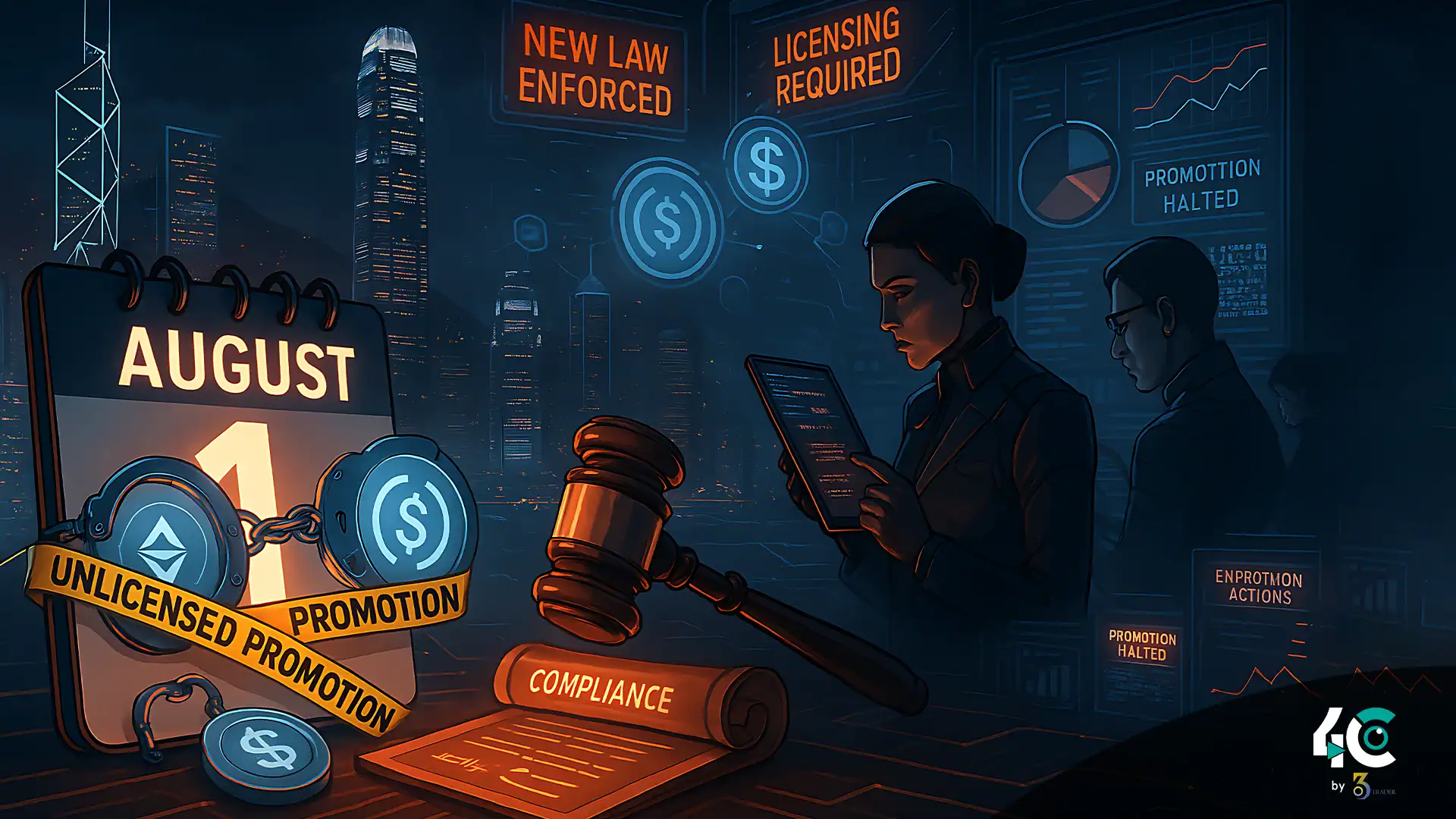Stablecoin Promotion Without License Becomes Criminal Offense
Hong Kong is enforcing a law from August 1, 2025, making it a criminal offense to promote unlicensed fiat-referenced stablecoins (FRS) to the public. This move positions Hong Kong as a global leader in regulating the digital finance ecosystem.
The city’s Legislative Council passed the Stablecoins Ordinance in May 2025. It states that individuals or businesses advertising or offering unlicensed stablecoin services will face a fine of 50,000 HKD (~6,300 USD) and up to six months in jail.
HKMA Issues Public Warning Ahead of Law’s Enforcement
The Hong Kong Monetary Authority (HKMA), the city’s de facto central bank, has warned citizens to avoid engaging with unlicensed stablecoins.
Eddie Yue, Chief Executive of HKMA, emphasized that the law’s objective is to protect investors, eliminate market manipulation, and restore trust in the digital asset space.
Yue cited hype-driven behavior over the past year that fueled price spikes in unregulated stablecoins without solid fundamentals. He added that a structured system is necessary to support long-term credibility in the sector.
Legal Clarity: Stablecoin Promotions Now Fully Regulated
The Stablecoins Ordinance lays out clear legal responsibilities:
- Section 9 bans public offerings of FRS unless licensed or exempted.
- Promoting or advertising a stablecoin without a license is prohibited.
- Violators face monetary penalties, potential disqualification from licensed financial institutions under Part 6, and even license suspension or cancellation for repeat offenses.
- Public notices will be issued to enhance accountability and raise investor awareness.
Over 50 Firms Competing for Stablecoin Licenses
According to Bloomberg, more than 50 companies are racing to obtain licenses ahead of the August deadline. Applicants include both fintech startups and traditional financial giants like Guotai Junan and ChinaAMC, the latter already managing a tokenized yuan money market fund.
However, Yue mentioned that most proposals are still conceptual. Many lack viable implementation plans, proper risk controls, and compliance frameworks. As a result, authorities will issue only a limited number of licenses initially, prioritizing applications that demonstrate real-world use cases and robust safeguards.
How Hong Kong’s Rules Compare Globally
Hong Kong’s stablecoin rules make it one of the most stringent jurisdictions worldwide. For comparison:
- The European Union under MiCA enforces fines for unauthorized promotions but doesn’t impose jail terms.
- The UK’s Financial Conduct Authority (FCA) has had limited success in eliminating illegal crypto ads due to enforcement gaps.
In contrast, Hong Kong’s framework includes:
- Fines,
- Reputation-based penalties, and
- Criminal consequences,
making it one of the toughest global laws for consumer protection in crypto.
Hong Kong’s Strategy for Digital Asset Leadership
This law is part of a broader push to position Hong Kong as a regulated digital asset hub, unlike Mainland China, which bans crypto trading outright.
Since 2022, the city has launched multiple pro-innovation initiatives, including:
- Approvals of Bitcoin and Ether ETFs,
- Licensing frameworks for crypto exchanges and custodians.
According to Lily King, COO at Cobo, Hong Kong continues to be a “sandbox” for Greater China’s fintech experiments. Industry leaders believe this could be a model for Asia’s regulatory environment—encouraging responsible innovation while maintaining market oversight.
Conclusion
Hong Kong’s stablecoin law sends a clear message: crypto innovation is welcome, but it must be paired with compliance, transparency, and investor protection. With dozens of firms seeking licenses and regulators ready to enforce tough standards, Hong Kong is poised to shape the future of digital assets not just in Asia, but across the globe.



























